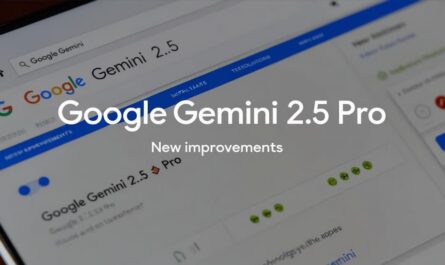You, building your career in a competitive market, need a “winning dev resume” that tells your story, highlights your achievements, and resonates with employers, thereby earning interviews even against tough competition. A sparkling resume is often your golden ticket to the interview room, especially for developers breaking into the field. I remember stumbling across my old resume draft, full of buzzwords but light on impact, it taught me the importance of substance over style, clarity over complexity.
What Is a Winning Dev Resume?
Known as your first, and sometimes only, opportunity to make an impression, a “winning dev resume” is more than just a list of jobs. It’s a tailored, purposeful document that demonstrates your technical competence, communication skills, and problem-solving abilities. Thereby, recruiters see not only what you know, but also how you apply that knowledge to real-world problems. The focus keyword, “winning dev resume,” should appear frequently and naturally in your resume and portfolio content.
Important Resume Formats for Developers
Firstly, choose a format that matches your experience and helps you shine. The reverse-chronological format is popular for traditional dev jobs, spotlighting recent roles and promotions. However, a skills-based or hybrid format may suit freelancers or those with project-heavy backgrounds, organizing the content by skill areas and then linking them with personal projects. Your winning dev resume should always prioritize readability, recruiters typically scan resumes for 6-8 seconds before deciding to read on or move on.
What Sections Should Be in Your Winning Dev Resume?
Secondly, your contact info should top the page, with clear links to your GitHub, LinkedIn, or portfolio website. Below this, write a concise summary that captures your most important attributes and experience relevant to the job you want. Tailor your language for each application, reflecting keywords from the job description for better ATS (Applicant Tracking System) matching. And, for the experience section, focus on what you did and the impact you had. For instance, instead of “worked on website redesign,” say, “led migration of legacy code to React, improving user retention by 25%.”
Showcasing Your Technical Skills and Projects
A winning dev resume highlights your technical toolkit. Listing skills like Python, JavaScript, SQL, and frameworks like React or Django is important, but your resume shines brighter when you link these skills to achievements. For example, “built REST APIs in Node.js for a fintech app serving 5,000+ active users.” You should also include personal side projects, open-source contributions, or game jams. These speak volumes, especially for entry-level devs or those pivoting into new sectors.
How Many Pages Should Your Winning Dev Resume Be?
Meanwhile, brevity rules. A one-page resume is ideal for freshers, while two pages may serve you if you’re experienced. But, you can elaborate in your online portfolio or cover letter. Remember to remove skills you don’t want to use again. If you list them, employers might just assign you to them.
What Not To Put In Your Winning Dev Resume
You should avoid vague statements, buzzwords without proof, and personal details not relevant to your career. Also, steer clear of outdated skills unless the role specifically requests them. Thereby your focus remains on the skills and experiences that matter most to modern dev jobs. Important: never lie. Most recruiters perform technical interviews or reference checks; honesty keeps you safe.
Optimizing Your Winning Dev Resume for ATS
Known issues with dev resumes involve automated Applicant Tracking Systems (ATS) that scan for keywords. You should format your resume in plain text or PDF, avoid fancy graphics or columns, and use standard section headings. Mirror the language from the job description, if the posting says “winning dev resume,” “JavaScript,” and “API development,” those should appear naturally throughout your document.
Do You Need a Cover Letter Alongside Your Winning Dev Resume?
Yes, many companies now require cover letters, especially for competitive jobs or remote roles. Your cover letter should reference your “winning dev resume” and further detail how your experience aligns with the targeted role. This is your space to explain career changes, employment gaps, or a special connection to the company and its mission.
Thirdly, consider Tunde, a Nigerian frontend developer who landed his role at an international game studio. He reworked his resume to highlight a React project where he implemented innovative UI features, backed by user data and feedback. The recruiter actually referenced his project during the interview, thereby showing that tailored examples can speak louder than lists.
Meanwhile, portfolios containing GitHub repositories, live demos, or even YouTube walkthroughs offer credible proof you can deliver what’s on your resume.
Recommendations for Your Winning Dev Resume
You should ask for feedback on your resume from peers, mentors, or recruiters. Implement their input, and keep your resume updated with each new skill or role. Online tools like Resume.io and Novoresume offer clear templates and suggestions. Also, review successful resumes in your niche; reverse engineer their structure while making it your own. You can even share anonymized versions with the community to get broader insights.
Common Resume Questions and Their Answers
People often wonder, “Should I use color or graphics?” Stick with simplicity unless you’re applying for creative roles, where tailored design can signal your brand. On the other hand, “Do I need certifications?” They help, but real-world projects and endorsements weigh heavier in most hiring decisions. “How long should my winning dev resume be?” Ideally, one to two pages, keeping content detailed and relevant, but concise.
Additionally, important: proofread. Even a small typo can mean your winning dev resume is passed over. Use tools like Grammarly, or ask a friend to review it. Also, ensure your contact information is always current. You don’t want to wow a recruiter, only for them to bounce your email.
How Your Winning Dev Resume Is Working
Lastly, track your response rate. If you aren’t getting interviews after several applications, review your resume, aligning it even more closely with the focus keyword “winning dev resume” and targeted job roles. Each adjustment is an experiment, keep iterating. Your journey, like game development itself, is filled with testing, feedback, and improvement. Your perfect opportunity could be just one winning dev resume away.
By weaving your story, skills, and achievements together, your resume won’t just be another document, it will be your loudest advocate in a crowded field. And that, I believe, is how you win.
For more information on dev salary, check out this post on: App developers vs software engineer salary 2025 guide.



